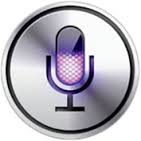26 of the 48 state Medicaid agencies studied could not report the number of “critical incidents” — such as abuse, neglect or exploitation.
You are here
Seven Examples of 'Voice First' Approaches to Benefit Older Adults
 Has the 'Voice First' interface trend gone mainstream -- and can it benefit seniors? Some think so. What has initially been driven by Apple platform Siri and the Amazon Echo – and now with Google Home -- is about to become mainstream (or as it is described, 'Voice First’) as the primary way we interact with technology. There is even a possibility soon that both the Echo and Google Home devices could be utilized for voice calling. Here are seven examples of 'Voice First' approaches and experiments for seniors. Soon there will be more that reference Google Home – please comment with your own 'Voice First' example -- these are from the company websites or are only described in news stories:
Has the 'Voice First' interface trend gone mainstream -- and can it benefit seniors? Some think so. What has initially been driven by Apple platform Siri and the Amazon Echo – and now with Google Home -- is about to become mainstream (or as it is described, 'Voice First’) as the primary way we interact with technology. There is even a possibility soon that both the Echo and Google Home devices could be utilized for voice calling. Here are seven examples of 'Voice First' approaches and experiments for seniors. Soon there will be more that reference Google Home – please comment with your own 'Voice First' example -- these are from the company websites or are only described in news stories:
AskMarvee. "Our initial integration is an app, an Alexa Skill, working with the Amazon Echo, Echo Dot and other Alexa-enabled devices. We’ll integrate in the future with Google Home, Apple’s Siri and other voice service platforms. But first, welcome to the Marvee Alexa Skill! Marvee is a companion care solution that gives those hindered by limited vision, mobility or aging challenges an easy way to communicate with family and caregivers just by using their voice! Specific needs for both the senior adult and family caregiver all managed in one centralized location and 'Powered with Marvee.'" Learn more at AskMarvee.
ElliQ. "Essentially, what ElliQ wants to do is to simplify the way senior citizens interact with technology especially if they live on their own. It is not yet clear if it can also control other devices that fall in the smart home category. In addition, it also provides functions that can meaningfully help its owners. For example, it can remind those who are already forgetful about their medication schedule. The device could even arrange for a ride, and other tasks that could make life easier for its owner.” Launched in January, learn more at Techtimes.
Google Home. "If you are already invested in the Google ecosystem and want a voice-controlled speaker for listening to music or controlling smart-home devices, the Google Home is an easy recommendation. Despite being new to the game compared with Amazon’s Echo, the Home feels surprisingly polished and complete, both in design and abilities. One of the advantages the Home offers over existing smart speakers is the ability to track the context of your queries based on previous inputs." Learn more at The Wirecutter.
LifePod – speaks a reminder before you ask the question. "LifePod automatically generates reminders, daily routines, checks in on users and provides updates to loved ones while keeping the user stimulated throughout the day with random events like singing songs, quizzes and telling jokes or stories. LifePod is Semi-Autonomous and works without any Alexa wake words or Alexa Skill invocation names." Learn more at LifePod.
Siri for seniors. Two of multiple examples about the Apple Siri device interface are included here: "'Remind me to take my medicine.' Forgetting to take medication can lead to big problems. Unfortunately, as we age, this can often become a common occurrence. When you tell Siri to remind you to take your medication, you just set it and forget it. When it's time to take your daily dose, she'll let you know. 'Read my emails.' If you find it difficult to stare at a computer screen, reading emails and keeping in touch with family and friends can be a cumbersome and frustrating task. By telling Siri to read your emails, you can avoid the squinting and headaches in exchange for relaxing and listening to her tell you what's going on in the world.'" Learn more at Thunderbird Senior Living.
Echo – usages with seniors. "Ambrose is participating in a project through the AARP foundation to address isolation among older adults in our senior housing community, Aigburth-Vale mansion, in Towson, MD. Residents who volunteer to participate in the program are given the Amazon Echo, a voice controlled speaker, to use at home, and the AARP Foundation will track volunteers’ usage patterns." Learn more at St. Ambrose Housing.
Echo – as reviewed via MarketWatch. "Among the more than 30,000 customer reviews on the Amazon website are those from caregivers for wheelchair-bound relatives who love the control that Alexa gives them over their environment, and also from family members of older adults who enjoy Alexa’s companionship and help. Alexa wasn’t designed for older adults, and experts say that might be part of its appeal with that demographic. The device avoids the bland aesthetic that has traditionally characterized assistive devices, which turns off consumers who don’t self-identify as old — that is, pretty much everyone." Learn more at MarketWatch.
